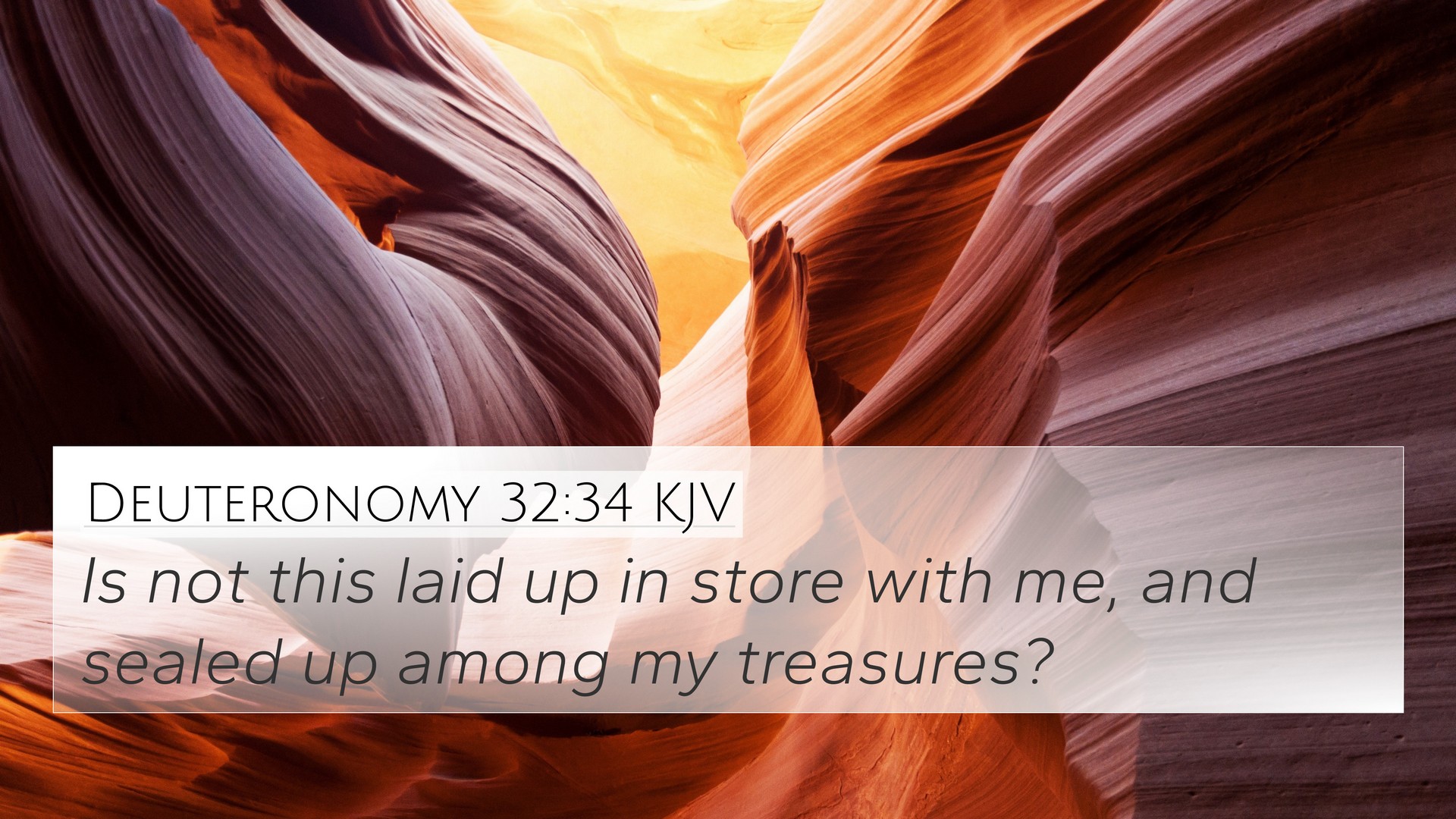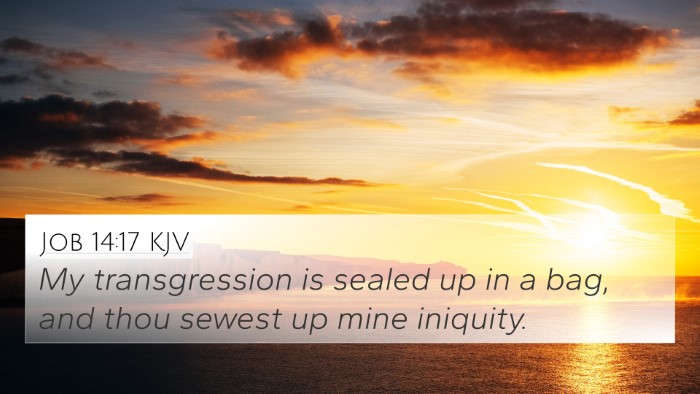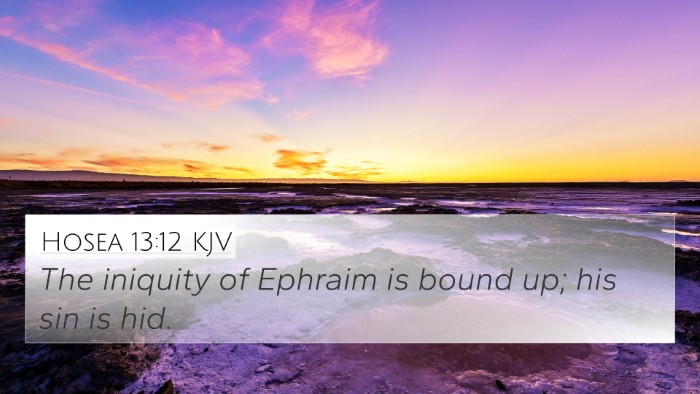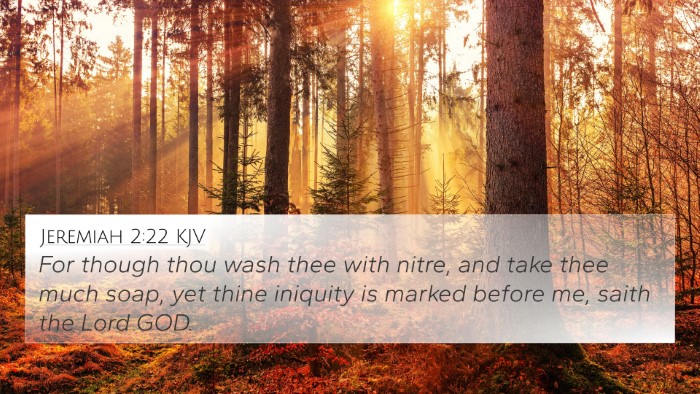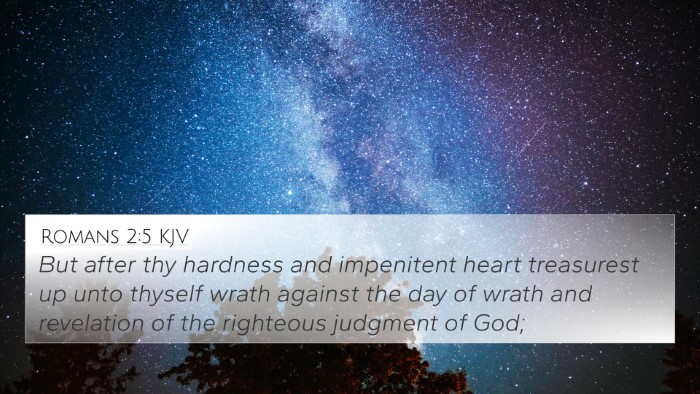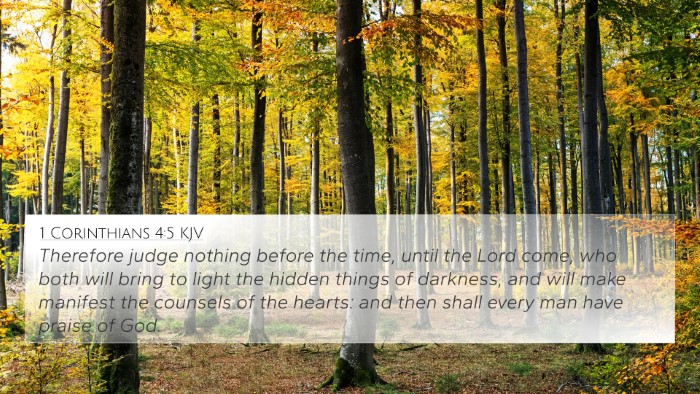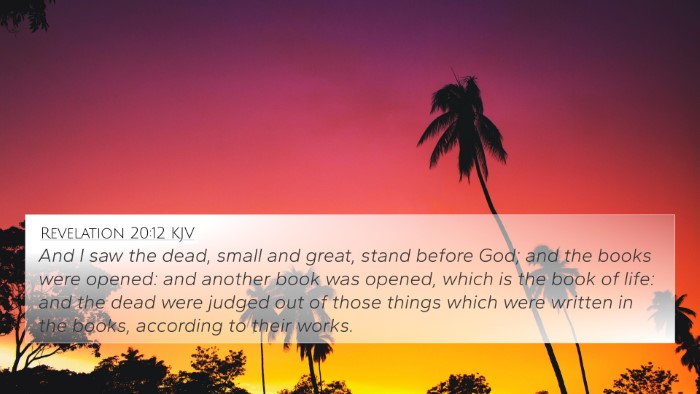Meaning and Interpretation of Deuteronomy 32:34
Deuteronomy 32:34 states: "Is not this laid up in store with me, and sealed up among my treasures?" This verse serves as part of Moses' song, a significant passage that encapsulates Israel's history and relationship with God. Below is a synthesized commentary drawn from respected public domain sources including Matthew Henry, Albert Barnes, and Adam Clarke, which explores the themes and insights from this verse.
Contextual Overview
This verse occurs in a larger context where Moses reflects upon the nation of Israel's sins and the consequences they will face due to their turning away from God. It emphasizes God's sovereign knowledge of human affairs, as well as His intimate storage of Israel's deeds and their ultimate judgment.
Thematic Significance
The motif of God’s "treasures" refers to His divine judgments and the certainties of His governance over justice. Here, we note several key interpretations:
-
Divine Justice: This verse illustrates God's justice. He keeps an account of all deeds. Matthew Henry remarks that no sin escapes God’s notice, and every act—good or bad—is recorded.
-
God’s Knowledge: Albert Barnes emphasizes the exhaustive knowledge of God, who knows the past, present, and future. Everything is accessible to Him, and He has complete awareness of our interactions and behaviors.
-
Anticipation of Judgment: Adam Clarke points to the notion that God’s treasures include His judgments, which are stored for the last day. Individuals and nations will reap the consequences of their choices according to divine reckoning.
Cross-References to Deuteronomy 32:34
In understanding Deuteronomy 32:34, we can look at several relevant cross-references that enhance its interpretation:
- Exodus 32:32: Moses pleads for the Israelites, which reflects the divine mercy contrasted with the coming judgment.
- Psalm 139:1-4: Emphasizes God’s omniscience, acknowledging that God knows our every thought and action.
- Romans 14:10-12: Speaks to the accountability of every individual before God, affirming that we will stand before Him and give account for our lives.
- Ecclesiastes 12:14: Stresses that God will bring every deed into judgment, underscoring the theme of divine records of our actions.
- Galatians 6:7: Illustrates that what one sows, one will also reap—confirming the idea of divine justice at play.
- Malachi 3:16-18: Suggests that the Lord keeps a book of remembrance for those who fear Him, linking to the concept of divine treasure.
- Revelation 20:12: Describes the final judgment scene, where the dead are judged according to their deeds, reinforcing the storage of actions as noted in Deuteronomy 32:34.
Insights on Cross-Referencing Biblical Texts
Utilizing a bible cross-reference guide allows believers and scholars alike to deepen their understanding of specific verses through a web of connections. Here are several methods for effective cross-referencing:
-
Identifying Connections: Look for themes and keywords that align across different books of the Bible, such as justice, knowledge, and accountability.
-
Comparative Studies: Engage with resources that offer insights into how different passages relate to overarching biblical themes.
-
Using a Bible Concordance: Reference a concordance to locate related scriptures, enabling a more comprehensive study of themes related to a specific verse.
The Practical Application of Deuteronomy 32:34
This verse encourages believers to reflect on their actions and recognize that God’s knowledge encompasses everything. The idea that our deeds are "laid up" calls for introspection and awareness of our moral standing before God. Here are some practical reflections drawn from the collective commentaries:
-
Accountability: Each person is held accountable for their actions, which can either serve as a motivator to live righteously or a caution for those straying from God’s commands.
-
Hope in Justice: Believers are assured that while injustices may occur in life, ultimate justice is with God, who sees all and will set things right in His timing.
-
Encouragement in Faithfulness: The mention of God’s treasures symbolizes not just judgment, but also His rewards for faithfulness, urging believers to remain steadfast in their faith.
Conclusion
Deuteronomy 32:34 serves as both a solemn reminder of divine oversight and a message of hope for those who remain faithful. By interlinking scripture and engaging in cross-referencing, one can develop a richer understanding of biblical teachings. This verse, in tandem with its numerous cross-references, provides a framework for deeper engagement with the text, illustrating the interconnected nature of the Scriptures.
